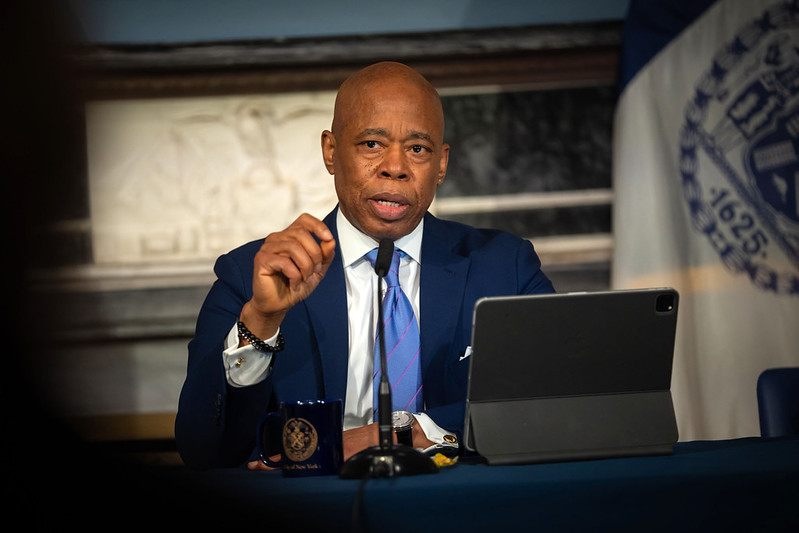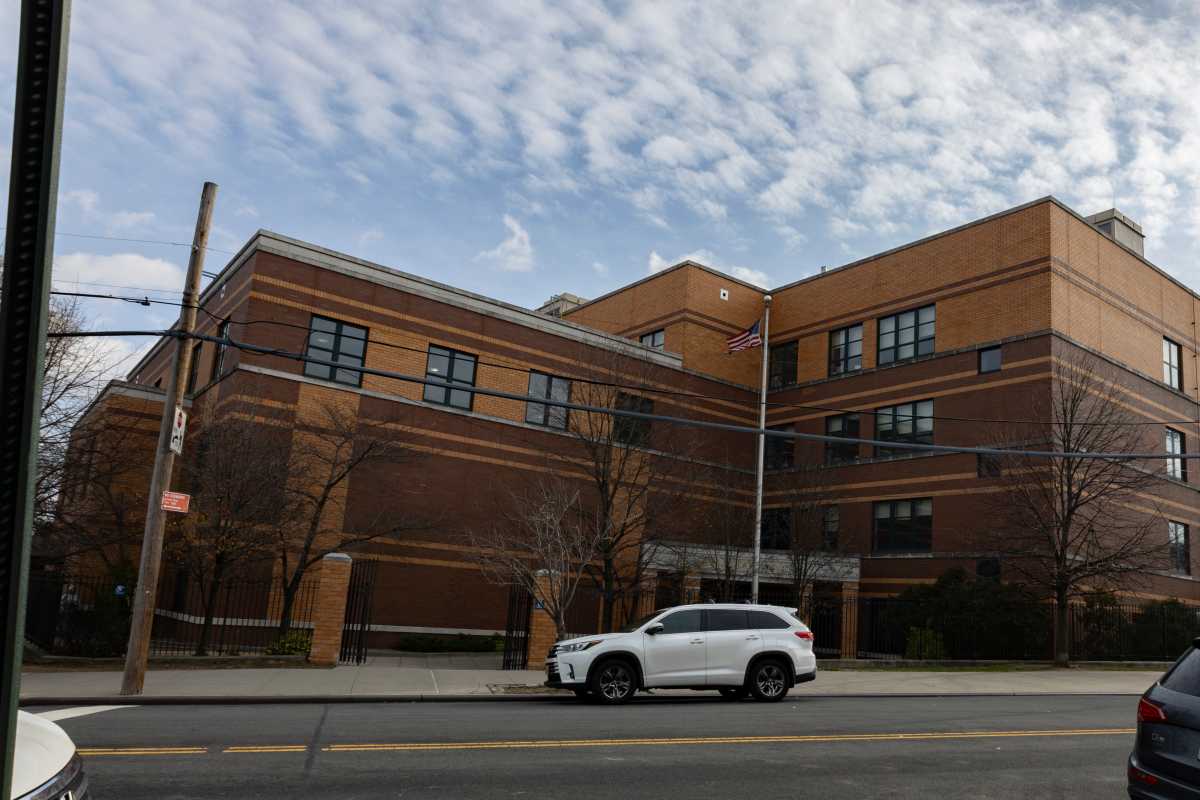Mayor Eric Adams scored two major policy wins in the month-late $254 billion state budget deal between Gov. Kathy Hochul and New York legislative leaders that she announced on Monday night.
Hochul, during an April 28 news conference in Albany, revealed that the not-yet-finalized agreement on a spending plan for the coming fiscal year includes two of the mayor’s top priorities: tweaks to the state’s recently reformed discovery laws and changes making it easier to involuntarily hospitalize those with severe mental illness.
“I vowed to make common-sense changes to our discovery laws to keep dangerous criminals from walking free over frivolous technical errors,” Hochul told reporters. “I vowed to get more New Yorkers who are suffering from mental illness the compassionate care they need…Well, we got it all done.”
The governor and legislative leaders — Assembly Speaker Carl Heastie and state Senate Majority Leader Andrea Stewart-Cousins — still must hash out the final details of the deal in the coming days, Hochul said. Then it must be approved by both houses of the state legislature and signed by the governor.
Adams, in a statement, said, “We are pleased with the promising announcements laid out by Governor Hochul today and look forward to hearing more details and reviewing the final budget language once it is approved by the Legislature.”

Discovery laws
Without going into the details, Hochul said the changes to discovery — the process by which prosecutors share evidence with the defense before a trial — are designed to crack down on recidivism by ensuring that those who commit crimes are not released from jail on “technicalities” only to commit more.
The state’s discovery laws were reformed by the state legislature in 2019 to ensure prosecutors shared evidence with defendents on a stringent timeline, so they did not go to trial only having seen the case against them right before.
Adams and the city’s five district attorneys have argued that the tweaks are necessary to keep repeat offenders behind bars.
“”Our amendments will prevent cases from being dismissed over minor prosecution omissions that don’t actually hurt the defense’s case,” Hochul said. “These common-sense changes protect defendants’ rights, which is important to me, while ensuring that victims get the justice they deserve.”
However, criminal justice advocates have raised concerns that the changes amount to a rollback that will once again make it harder for defendants to see the evidence prosecutors have against them well before they go to trial.
“The people we serve are entitled to see the full weight of the evidence pending against them, in a timely manner — a basic principle of fairness and due process, and the bare minimum necessary to ensure a zealous defense,” the Legal Aid Society said in a statement.
Strengthening ‘commitment’
Although Hochul also did not discuss the changes to involuntary removals in detail, she said they are broadening the definition to include individuals who cannot care for their “basic needs.” Previously, only those found to pose an imminent physical danger to themselves or others were subject to involuntary hospitalizations.
“We’ve agreed to clarify and strengthen our involuntary commitment laws,” she said. “This will allow us to connect people in the throes of severe mental illness with the life-saving care that they need and deserve.”
Adams has advocated for the state-level change since 2022 to make it easier for the city to take those with severe mental illness off the streets and get them into psychiatric treatment.
But many critics, including Public Advocate Jumaane Williams and City Council members, have argued Adams has focused too much on expanding the practice and should instead boost funding for the city’s mental health care apparatus.





































